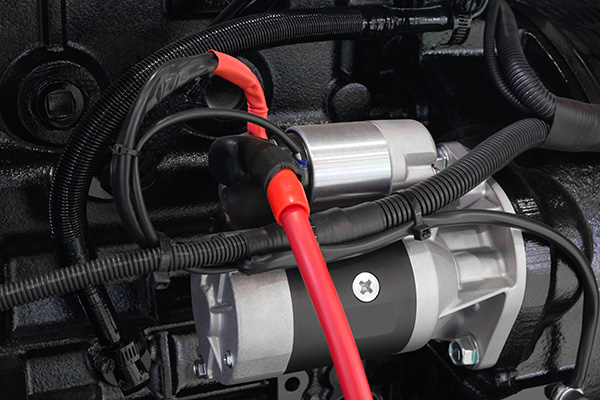Posted on 1/31/2025

It’s easy to ignore the fuel warning light when you’re focused on getting to your destination. Maybe you’re trying to save time or thinking about stretching your budget a little further. But driving with low fuel levels is more than just a minor gamble—it can lead to costly damage and a range of unnecessary headaches. We'll explain why keeping your gas tank adequately filled is one of the simplest yet most effective ways to protect your car and wallet. How Your Fuel System Works Your car’s fuel system is more complex than many people realize. At the heart of it lies the fuel pump, which pulls gas from the tank and sends it to the engine. For this pump to function properly, it relies on a steady supply of fuel not only to operate but also to stay cool. When your tank is nearly empty, the pump has to work harder to deliver what little gas is left. This extra effort generates heat and increases wear and tear, which can eventually lead ... read more
Posted on 1/1/2025

Why Being Mindful Makes You a Better Driver As the new year begins, it’s a great time to think about how to approach daily routines, like driving, with a fresh perspective. Mindful driving can transform your time on the road from a stressful experience into one that promotes calmness, focus, and safety. Mindfulness—the practice of staying present and attentive—helps reduce distractions, improve reaction times, and create a safer driving environment for everyone. Here’s how being mindful can make you a better driver in 2025. 1. Mindfulness Reduces Distracted Driving Distracted driving is a significant issue on the road, often resulting in missed signals, slower reaction times, and accidents. Mindfulness can help drivers become more aware of their habits behind the wheel, leading to fewer distractions. By focusing solely on the act of driving, we naturally let go of the impulse to check our phones or become lost in thought. According to Harvard’s Center f ... read more
Posted on 12/20/2024

You step outside to find a mysterious puddle under your car. What is it, and should you be concerned? Car fluid leaks can feel like a frustrating guessing game, but they signal something important about your vehicle's health. Whether you're cruising around Easton, PA, or parked in your driveway, understanding the signs and causes of fluid leaks can save you time, money, and stress. Let’s unravel this mystery and help you keep your car in great shape. Fluid Leaks Ignoring a fluid leak is never a good idea. Each type of fluid in your car serves a vital purpose, from lubricating the engine to keeping your brakes reliable. When something is leaking, it’s often a warning sign that a component isn’t functioning as it should. Left unchecked, even a small leak can escalate into a costly repair. Leaks can also impact your car’s performance and safety. For example, a brake fluid leak compromises your ability to stop, while a ... read more
Posted on 11/29/2024

When you turn the key or push the start button in your car, you expect the engine to fire up without a hitch. But what happens if your car doesn’t start or makes strange noises? One possible culprit could be a bad starter. The starter motor gets your engine up and running, so if it fails, your car might not start at all. Let’s go over the common symptoms of a bad starter and how to recognize when it’s time to get help. What Does the Starter Do in Your Car Before we get into the symptoms, it's important to understand the role of the starter. The starter motor is activated when you turn your key or push the start button. It engages with the engine’s flywheel to turn the engine over, getting it started. If your starter is malfunctioning, it can lead to various starting problems. Now, let’s take a look at the signs that indicate your starter might be on its way out. 1. The Engine Doesn’t Respond at All If you&rs ... read more
Posted on 10/31/2024

One of the most important pieces of information you rely on while driving is your speed. Not only does it help keep you within legal speed limits, but it also ensures your safety and the safety of those around you. So, what do you do if your speedometer suddenly stops working? A malfunctioning speedometer can be both frustrating and dangerous. Understanding the reasons behind the failure and knowing how to address it can save you from accidents and potential fines. Why Is My Speedometer Not Working If your speedometer stops working, there could be several reasons behind it. Knowing the underlying cause is the first step to fixing the problem. Common causes include: Faulty Speed Sensor The speed sensor is one of the primary components responsible for sending data to your car’s speedometer. When this sensor malfunctions, the speedometer won't be able to display your speed accurately or at all. This sensor failure may also cause other issues ... read more